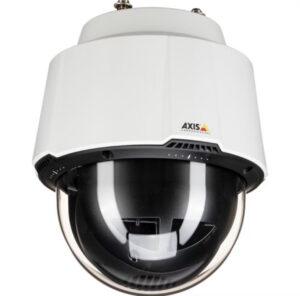While 4K security cameras offer advanced features compared to traditional cameras, they cannot replicate the full range of capabilities of human eyesight.
Here are a few key differences:
- Field of View: While 4K cameras can capture a larger field of view compared to traditional cameras, they still have a limited field of view compared to human eyesight. Humans can perceive a 180-degree field of view without moving their eyes. Whereas most cameras have a field of view of 90 degrees or less.
- Depth Perception: Human eyesight includes depth perception, which allows us to perceive objects in three dimensions. While 4K cameras can capture detailed video footage. They cannot replicate the full depth perception of human eyesight.
- Color Perception: Human eyesight can perceive a wider range of colors than most cameras, including subtle variations in hue and saturation. While 4K cameras can capture high-quality color video footage. They may not be able to fully replicate the complexity of human color perception.
- Adaptability: Human eyesight can adapt to changes in lighting and environmental conditions quickly and easily. Whereas cameras may require adjustment or specialized features to capture accurate footage in varying conditions.
In summary,
while 4K security cameras offer advanced features compared to traditional cameras. They cannot replicate the full range of capabilities of human eyesight. However, they can provide valuable and detailed video footage to aid in security monitoring and investigations.
Human eyesight at night, also known as scotopic vision, is different from daytime vision. In low-light conditions, the human eye relies more on rod cells. Which are more sensitive to light but are not as effective at detecting color or detail as cone cells, which are responsible for daytime vision.
At night, human eyesight may have limited distance vision, depending on the amount of available light. In complete darkness, the eye may not be able to see objects at a distance at all. However, under low-light conditions, the eye can still detect objects at a certain distance.
Factors that can affect distance vision at night include the amount of available ambient light. The size and contrast of the object, and the age and visual acuity of the individual. For example, younger individuals with good eyesight may have better distance vision at night than older individuals with poor eyesight.
To improve distance vision at night, individuals may use artificial light sources such as flashlights, streetlights, or headlights. Night vision goggles and cameras with infrared illumination can also enhance vision in low-light conditions. However, it’s important to remember that even with technology, distance vision at night may still be limited compared to daytime vision.
Please call LA security cameras for a free estimate at 213-761-7900


